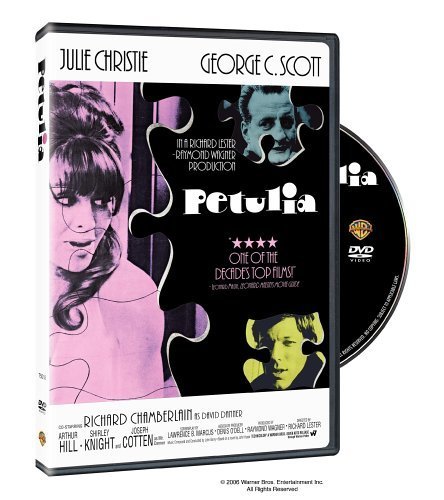 Director: Richard Lester
Director: Richard Lester
Writing Credits: Lawrence B. Marcus (screenplay), John Haase (novel), Barbara Turner (adaptation)
Cast: George C. Scott, Julie Christie, Joseph Cotten, Shirley Knight, Arthur Hill, Richard Chamberlain
Music: John Barry
Cinematography: Nicolas Roeg
The Knack and How to Misuse It
A Look Back at Petulia
By Walt Mundkowsky
No doubt about it, Richard Lester has “the knack”: considerable intelligence, explosive visual invention, unequalled cleverness with a camera. Petulia, his latest, parades these virtues – and reveals the defects which prevent him from becoming a major artist. Petulia starts with an almost insurmountable disadvantage. It is based on a novel – Me and the Arch Kook Petulia – by John Haase, who was aptly described by John Simon as “a male Californian Rona Jaffe.” The story is tired soap-opera material.
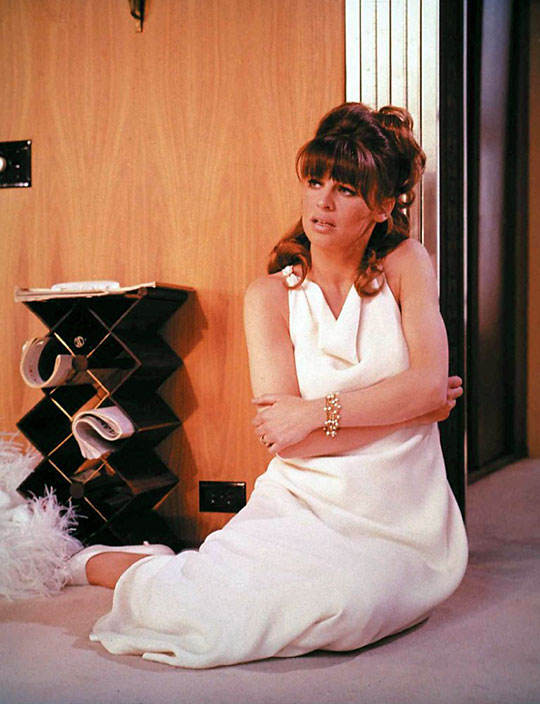 We start at a fancy party. (Big Brother and the Holding Company are playing at a charity dance titled “Shake for Highway Safety.”) Archie Bollen, a middle-aged surgeon who is divorcing his wife, is one of the party’s hosts. Dancing with her husband is Petulia Danner, a working-class English girl from Bristol – her mother was a prostitute, she claims – who has married into San Francisco high society. The party bores Petulia (“Highway safety is so blah”), and she finds Archie interesting, so she propositions him rather awkwardly. (“I’ve been married six months and I’ve never had an affair.”) Petulia is the very embodiment of chic – upswept blonde hair, white ostrich feathers, jewels, etc. – and Archie half-heartedly accepts. They drive to an electronic nightmare of a motel, but she changes her mind. She continues to stalk him, though, finally breaking in on him and his mistress, shouting, “All that crap about the humanitarianism of the medical profession –” Out of resignation – or something – Archie takes her to bed. He leaves the next morning to spend the day at Alcatraz with his two sons. When he returns, his flat is a shambles; he finds Petulia on the floor, beaten into a bloody mess. Petulia and her father-in-law conceal the circumstances surrounding her injuries. Her husband was the assailant, but she goes back to live with him even though he has done this before. Archie is left helpless. Many months later Petulia enters the hospital where Archie works – to have a baby. Again he offers to save her from her unfortunate marriage. She turns him down, and the movie ends with one of her “kooky” rejoinders. “When I lie dying, wondering what my life’s been all about, you won’t even cross my mind. No, wait – I lied – ” She adds gravely, “I’ll never forget you, Arnold.”
We start at a fancy party. (Big Brother and the Holding Company are playing at a charity dance titled “Shake for Highway Safety.”) Archie Bollen, a middle-aged surgeon who is divorcing his wife, is one of the party’s hosts. Dancing with her husband is Petulia Danner, a working-class English girl from Bristol – her mother was a prostitute, she claims – who has married into San Francisco high society. The party bores Petulia (“Highway safety is so blah”), and she finds Archie interesting, so she propositions him rather awkwardly. (“I’ve been married six months and I’ve never had an affair.”) Petulia is the very embodiment of chic – upswept blonde hair, white ostrich feathers, jewels, etc. – and Archie half-heartedly accepts. They drive to an electronic nightmare of a motel, but she changes her mind. She continues to stalk him, though, finally breaking in on him and his mistress, shouting, “All that crap about the humanitarianism of the medical profession –” Out of resignation – or something – Archie takes her to bed. He leaves the next morning to spend the day at Alcatraz with his two sons. When he returns, his flat is a shambles; he finds Petulia on the floor, beaten into a bloody mess. Petulia and her father-in-law conceal the circumstances surrounding her injuries. Her husband was the assailant, but she goes back to live with him even though he has done this before. Archie is left helpless. Many months later Petulia enters the hospital where Archie works – to have a baby. Again he offers to save her from her unfortunate marriage. She turns him down, and the movie ends with one of her “kooky” rejoinders. “When I lie dying, wondering what my life’s been all about, you won’t even cross my mind. No, wait – I lied – ” She adds gravely, “I’ll never forget you, Arnold.”
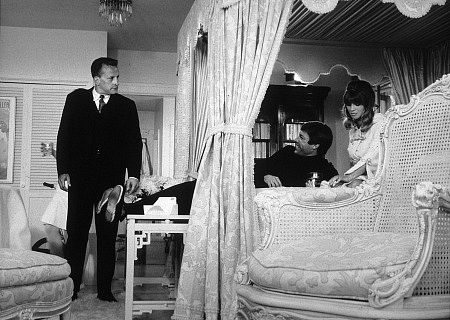 Petulia is another commercial dilution of Resnais’ fragmentation techniques, after The Pawnbroker and Point Blank. With Hiroshima mon amour Resnais inaugurated the cinema flashback –“flash” being the operative word. He showed just how suddenly and strikingly a memory can intrude. Lester makes extensive use of this: From start to finish he intercuts brief shots – Archie in the operating room, Petulia falling to the floor as her husband breaks her rib, an overexposed sequence of Petulia and her husband (a vastly inferior imitation of the brilliant tracking shot which floods the screen with light at the end of Resnais’ L’année dernière à Marienbad), Petulia breaking a window. Resnais’ jumps through time and space always underline the theme that runs through his films: what John Ward calls the “Bergson-Proust dichotomy of Time the destroyer and Memory the preserver. But as Bergson points out and as Resnais never tires of affirming, memory does more than preserve; it also creates.” Lester’s scrambling of the time sequence in Petulia carries none of these philosophical implications; he is merely using a narrative device which has become fashionable.
Petulia is another commercial dilution of Resnais’ fragmentation techniques, after The Pawnbroker and Point Blank. With Hiroshima mon amour Resnais inaugurated the cinema flashback –“flash” being the operative word. He showed just how suddenly and strikingly a memory can intrude. Lester makes extensive use of this: From start to finish he intercuts brief shots – Archie in the operating room, Petulia falling to the floor as her husband breaks her rib, an overexposed sequence of Petulia and her husband (a vastly inferior imitation of the brilliant tracking shot which floods the screen with light at the end of Resnais’ L’année dernière à Marienbad), Petulia breaking a window. Resnais’ jumps through time and space always underline the theme that runs through his films: what John Ward calls the “Bergson-Proust dichotomy of Time the destroyer and Memory the preserver. But as Bergson points out and as Resnais never tires of affirming, memory does more than preserve; it also creates.” Lester’s scrambling of the time sequence in Petulia carries none of these philosophical implications; he is merely using a narrative device which has become fashionable.
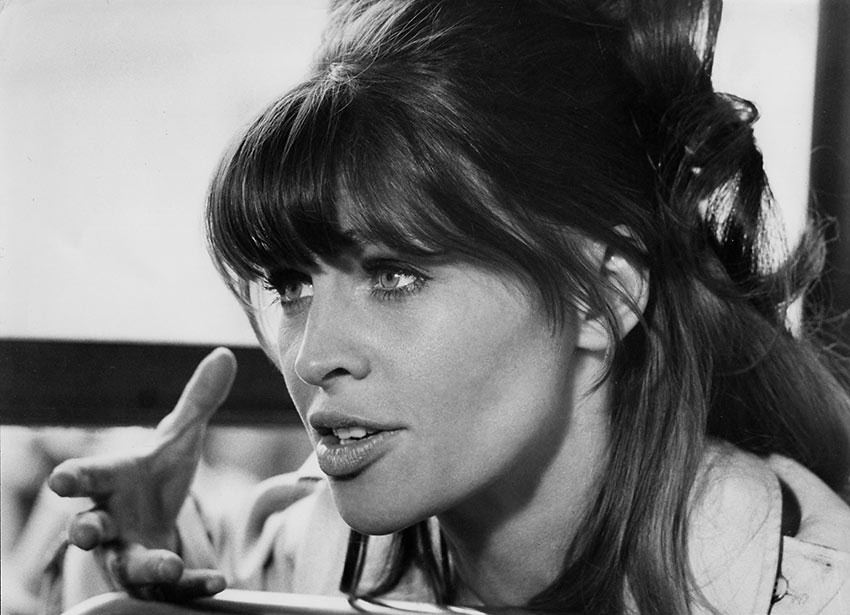
Lester’s style largely derives from his early work as a director of TV commercials. In fact, A Hard Day’s Night, The Knack and Help! looked very much like stretched-out TV commercials, with their abrupt zoom shots, lack of story line, and quick, elliptical editing. The frenetic cutting wrecked A Funny Thing Happened on the Way to the Forum. As John Russell Taylor said, “… slow-burn comedy chopped up into little bits does not become fast, snappy comedy; it remains obstinately little bits of slow-burn comedy, but prevented from working satisfactorily even in their own terms.” But this conflict between style and subject was an advantage in How I Won the War – it permeated the movie with biting tension. In Petulia he has found a good vehicle for his approach – upper-echelon California. Here San Francisco is a TV ad brought to life. Lester’s sharp commentary on contemporary values brings to mind what Tony Richardson (in The Loved One) and Mike Nichols (in The Graduate) have tried to do with similar settings. (Talking about intentions there is risky, as it’s hard to find two more confused and muddled films.) Admittedly, Lester’s target is not small, but he hits the mark with some regularity. The automated motel, the rows and rows of tract homes, the supermarket, the charity ball, the hospital where Archie operates become, in Lester’s hands, set pieces of well-lit bleakness.
Lester uses the comments of bystanders on the edges of the story very effectively – much as he did in The Knack. They serve as a kind of chorus, remarking on the main action. When Petulia is carried out of Archie’s apartment after being beaten, the neighbors comment, “Oh Harry, come and look what’s going on! – She’s dead. – What happened to you? – She’ll have a heck of a time washing that blood out of her hair.” This empty speech and Lester’s clever use of locations combine to make important statements about the stifling world the film’s characters – and we – inhabit.
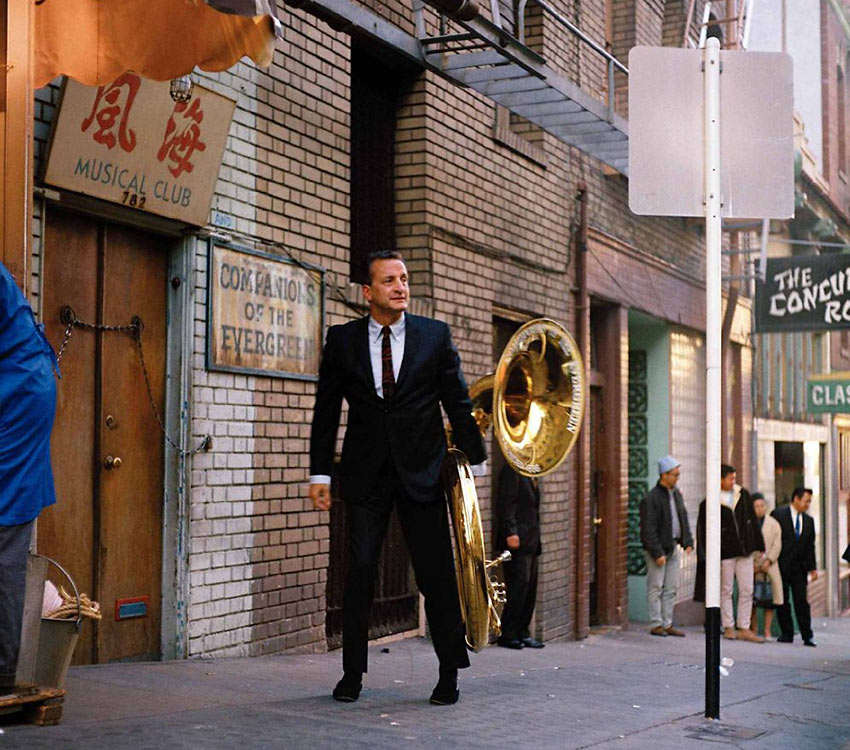
But Petulia must be considered a failure, in spite of its many merits. Its story simply fails to convince. “Petulia, you’ve turned me into something crazy,” says Archie. And again at the film’s close: “Did I change you, Archie?” –“You turned me into a nut.” We are obviously supposed to believe that Petulia and Archie have switched positions at the end – that he has become a “kook” and she has become responsible. Archie says that “one day” he “just got very tired of being married.” “You’re a lonely screwed-up mess,” Petulia tells him. When the film ends, Archie seems no less tired, lonely or screwed up than he was at its start. And Petulia has not gotten more responsible; she has become pregnant. Stanley Kauffmann correctly observed, “The only serious change in Petulia is that at last she is satisfying her starved maternal urge, which is not the same, necessarily, as undergoing a change of character.”
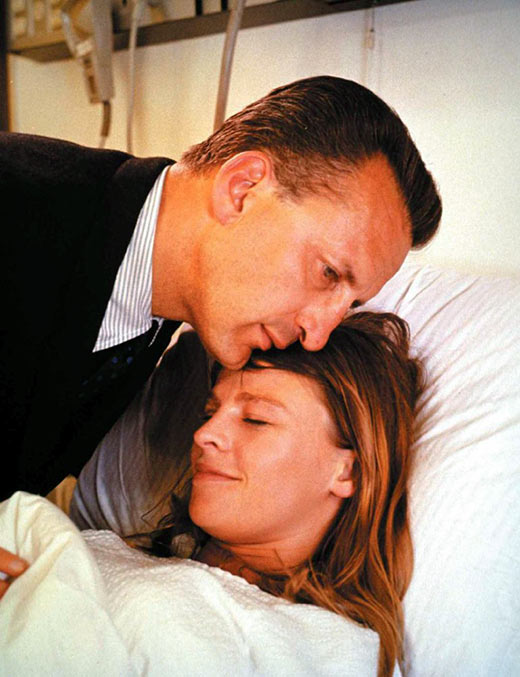 Haase’s novel was “adapted” by Barbara Turner; the screenplay itself is credited to Lawrence B. Marcus. The supposedly flip dialogue is strained (“My name is Petulia.” – “I’m not surprised”), and the script does nothing to alleviate the novel’s basic problems. The film’s events seem too pat, too manipulated.
Haase’s novel was “adapted” by Barbara Turner; the screenplay itself is credited to Lawrence B. Marcus. The supposedly flip dialogue is strained (“My name is Petulia.” – “I’m not surprised”), and the script does nothing to alleviate the novel’s basic problems. The film’s events seem too pat, too manipulated.
As Archie, George C. Scott gives his finest movie performance since Dr. Strangelove. His characterization is so strong that the film seems mistitled – it is Archie’s story rather than Petulia’s. Julie Christie, on the other hand, cannot transform the script’s manifold flaws. Richard Chamberlain is surprisingly pointed as the weak, sadistic husband, and Shirley Knight (Archie’s ex) is both frightened and scary. Petulia’s reactionary father-in-law is the villain of the piece, and Joseph Cotton seemingly channels the silky, venomous tones of William F. Buckley, Jr. Prized in the theatre, Arthur Hill and Kathleen Widdoes have little to do.
Petulia is technically superior. (Scott reported that Lester spent more time with the camera crew than with the actors.) Nicolas Roeg employs the full armory – focus racks, zoom shots, all types of camera movement, filters – and his vivid Technicolor palette emphasizes the contrasts in Lester’s time shifts. Antony Gibbs edited The Knack, and he keeps things moving along. The flashbacks are never unintelligible, while the few action sequences (the roller derby, Archie and his sons romping through Alcatraz, an auto-pedestrian accident) are stunning. The music is reticent and subdued; John Barry can be much more than his Bond scores.
Richard Lester has been called “one of the film’s New Men.” Perhaps he is, but dazzle alone will never satisfy.
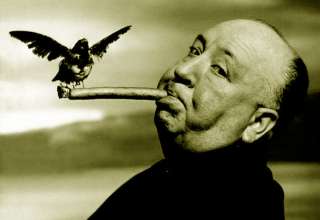


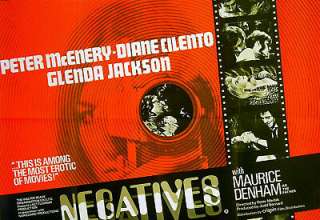
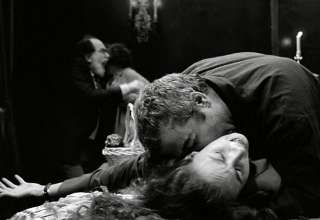
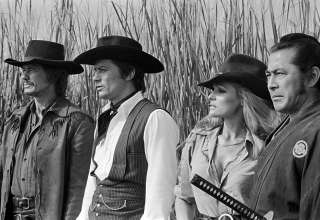
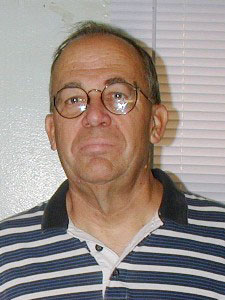 Walt Mundkowsky was born 1944 in San Antonio, TX. In his teens he had a dachshund named for German composer Hugo Wolf. Extensive writings on film (1968-72 freelance, a “Cinema Obscura” column in Home Theater, 1995-2001). He favors the mine-shaft approach — in-depth exploration of tiny, unrelated areas. Now a resident of Koreatown in L.A., he has lived in basements in Denver, London and Stockholm, and may very well do so again.
Walt Mundkowsky was born 1944 in San Antonio, TX. In his teens he had a dachshund named for German composer Hugo Wolf. Extensive writings on film (1968-72 freelance, a “Cinema Obscura” column in Home Theater, 1995-2001). He favors the mine-shaft approach — in-depth exploration of tiny, unrelated areas. Now a resident of Koreatown in L.A., he has lived in basements in Denver, London and Stockholm, and may very well do so again.












